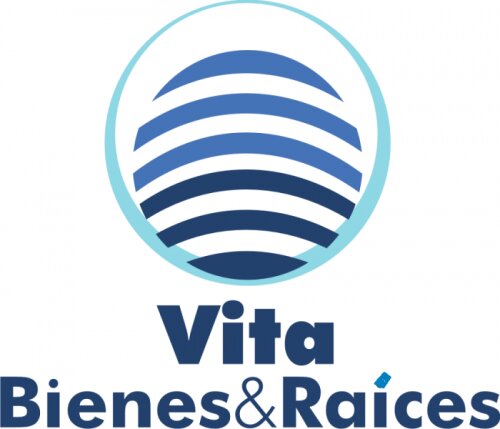Best Inheritance Law Lawyers in Argentina
Share your needs with us, get contacted by law firms.
Free. Takes 2 min.
Or refine your search by selecting a city:
List of the best lawyers in Argentina
1. About Inheritance Law in Argentina
Inheritance law in Argentina is primarily governed by the Código Civil y Comercial de la Nación (CCC) which modernized how estates are managed after a person dies. The code regulates who inherits, how property is transferred, and how debts and taxes are handled in the process. It also covers testamentary dispositions, intestate succession, and the rules for distributing assets among heirs.
The system balances a decedent's freedom to dispose of assets with protections for legally designated heirs, known as forced heirs or legítimas. This means certain portions of an estate must be reserved for specific relatives, such as children and, in some cases, a surviving spouse. Understanding these rules is essential to avoid disputes and delays.
La legítima protege a los herederos forzosos y restringe la libertad testamentaria, conforme al Código Civil y Comercial de la Nación.
For residents, this framework affects whether a person can freely leave assets to non-heirs, how a will is interpreted, and how a partition should be conducted. Administrative steps like inventory, valuation of assets, and formal partitions often require both legal representation and notarial involvement. The process can vary significantly by province due to local procedures and taxes.
Key sources for this overview include the official legislation and court guidance. Código Civil y Comercial de la Nación and Poder Judicial de la Nación.
2. Why You May Need a Lawyer
Below are concrete scenarios in Argentina where hiring a specialist in Inheritance Law is crucial. Each example reflects real-world situations that commonly arise in practice.
- Death without a valid will creates intestate succession issues among spouses, children, and other relatives, requiring a lawyer to determine legitimate shares and file the necessary petitions.
- A will contains ambiguous language or apparent inconsistencies requiring interpretation by a trained abogado to avoid disputes between potential heirs.
- A property or assets are located in multiple provinces, demanding coordinated clearance, inventory, and partition across different jurisdictions.
- There are debts to creditors that must be settled before distributions can occur, necessitating an inventory and valuation process supervised by a solicitor.
- Donations made during the decedent’s life affect legítima and must be colacionado (taken into account) when dividing the estate, which often requires careful calculation by a legal professional.
- Provinces impose their own inheritance related taxes or transfers, requiring a lawyer to ensure compliance and minimize tax exposure for heirs.
In complex cases involving blended families or changes in ownership across real estate, a lawyer helps preserve rights, avoid invalid partitions, and prepare enforceable documents such as inventories, declarations of heirs, and partitions. An abogado can also coordinate with notaries (escribanos) when required by local practice.
3. Local Laws Overview
Argentina’s inheritance framework centers on the national civil and commercial code, with procedural aspects governed by national and provincial rules. The following laws and regulations are central to how succession is handled in practice.
- Código Civil y Comercial de la Nación (Ley 26994) - Governs succession, legítima, testamentos, y partición de bienes. Enforcer from 1 August 2015, with subsequent regulatory updates that clarified interpretation and modernized procedures.
- Código Procesal Civil y Comercial de la Nación - Regulates civil and commercial procedures, including petitions, notarial actions, inventory, and partitions in succession cases. It shapes how courts and notaries manage probate workflows.
- Impuesto a las Transmisiones Gratuitas de Bienes (ITGB) o impuestos provinciales sobre sucesiones - Although there is no federal inheritance tax, several provinces levy taxes on transfers of assets at death. Rules vary by province and affect the net amount distributed to heirs. For example, Buenos Aires Province applies its own provincial tax framework when applicable.
Notes on jurisdiction and practice:
- Rules for testamentary formalities include open, closed, and holographic testaments under the CCC. The exact formalities can differ by province in practice, especially for notarial involvement.
- Notaries (escribanos) play a significant role in many succession matters in Argentina, including the preparation of inventories, partitions, and estate settlements, depending on local practice guidelines.
- Procedural timelines and required documents can vary by province, making local legal advice essential for efficient resolution.
Fuentes útiles para estas normas incluyen Código Civil y Comercial de la Nación y Poder Judicial de la Nación.
4. Frequently Asked Questions
What is succession in Argentina?
Succession is the legal process by which a decedent's assets are transferred to heirs after death, either through a will or by intestate rules if no will exists.
How do I start a succession process here?
Usually you file a petition with the court or go through a notary, depending on jurisdiction and asset type, and assemble inventories and beneficiary information.
What is a will and what forms can I use?
A will is a formal document that directs asset distribution after death. Argentina recognizes several forms, including open, closed, and holographic wills under the CCCN.
Where do I file for a declaration of heirs?
Declarations of heirs are often filed with a civil court or through a notary, depending on provincial practice and asset location.
Why is the legítima important in Argentina?
The legítima protects certain heirs by reserving a portion of the estate for them, limiting the testator’s freedom to dispose of all assets.
Can a will be contested after death?
Yes, a will can be contested on grounds such as lack of witnesses, invalid form, or failure to meet legal requirements for validity.
Should I hire a lawyer to handle an inheritance tax filing?
If a provincial tax applies, a lawyer can help assess liability, prepare filings, and minimize penalties or interest.
Do I need to have a local abogado to manage a succession?
Local practice and jurisdiction often require local counsel for filing, notices, and partitions, particularly when real estate is involved.
Is intestate succession automatic when someone dies without a will?
Intestate succession follows statutory rules to identify heirs and shares, but a lawsuit or filing is still required to settle the estate.
What’s the difference between a will and intestate succession?
A will is a voluntary disposition of assets; intestate succession occurs when there is no valid will guiding distribution.
How long does a typical succession take in Argentina?
Straightforward cases may settle in 6 to 12 months, while complex disputes can extend for several years, especially with real estate or cross-provincial assets.
Can I modify a will after it is created?
Yes, through a codicil or a new will, following formalities and ensuring that the prior document is properly revoked or updated.
Do I need to provide a formal inventory to start settlement?
Yes, inventories and valuations are commonly required to determine asset value and establish shares for adjudication or partition.
5. Additional Resources
- Poder Judicial de la Nación - Official portal with information on succession procedures, forms, and court processes across jurisdictions. https://www.pjn.gov.ar
- Argentina.gob.ar - Código Civil y Comercial de la Nación - Access to the consolidated national civil and commercial code, including succession provisions. https://www.argentina.gob.ar/normativa/nacional/codigo-civil-y-comercial-de-la-nacion
- Ministerio de Justicia y Derechos Humanos - Central government hub for legal and rights information, including guidance on wills and succession matters. https://www.argentina.gob.ar/justicia
6. Next Steps
- Collect critical documents now, including death certificate, last will if any, and asset lists. This helps determine jurisdiction and required forms within 2 weeks.
- Identify the proper jurisdiction for filing based on where assets are located and provincial rules. This typically takes 1-2 weeks after documents are gathered.
- Consult a local abogado or solicitor with inheritance experience to assess the case and explain potential timelines. Schedule initial consults within 2-4 weeks.
- Request a preliminary inventory and valuation of assets, including real estate, bank accounts, and investments. Allow 2-6 weeks for initial estimates.
- Draft and file the necessary tutelage papers, will interpretation, or declaration of heirs with the court or notary, depending on jurisdiction. Expect a 1-3 month window for initial filings.
- Coordinate with a notary (escribano) if required to formalize the partition and prepare the escritura de partición within 1-2 months after heirs are identified.
- Address taxes and provincial duties early to avoid delays, and file any required tax documents with the appropriate provincial or federal authorities. Timeframes vary by province, typically weeks to months.
If you would like, I can tailor this guide to your city or province in Argentina and help locate a qualified inheritance lawyer in your area. For references, use the official sources listed in the Resources section to verify current rules in your jurisdiction.
Lawzana helps you find the best lawyers and law firms in Argentina through a curated and pre-screened list of qualified legal professionals. Our platform offers rankings and detailed profiles of attorneys and law firms, allowing you to compare based on practice areas, including Inheritance Law, experience, and client feedback.
Each profile includes a description of the firm's areas of practice, client reviews, team members and partners, year of establishment, spoken languages, office locations, contact information, social media presence, and any published articles or resources. Most firms on our platform speak English and are experienced in both local and international legal matters.
Get a quote from top-rated law firms in Argentina — quickly, securely, and without unnecessary hassle.
Disclaimer:
The information provided on this page is for general informational purposes only and does not constitute legal advice. While we strive to ensure the accuracy and relevance of the content, legal information may change over time, and interpretations of the law can vary. You should always consult with a qualified legal professional for advice specific to your situation.
We disclaim all liability for actions taken or not taken based on the content of this page. If you believe any information is incorrect or outdated, please contact us, and we will review and update it where appropriate.
Browse inheritance law law firms by city in Argentina
Refine your search by selecting a city.

















